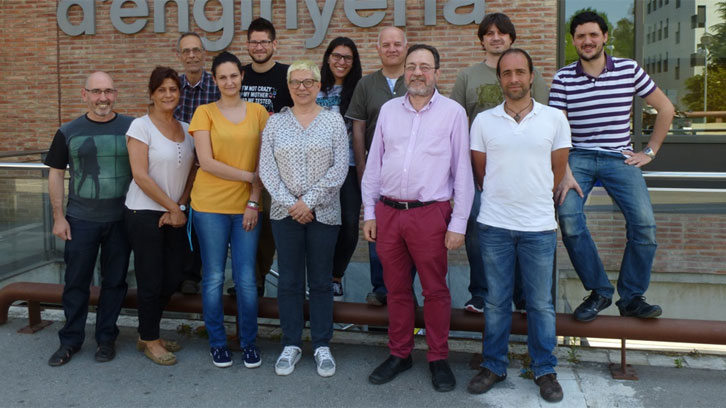Biocatalysts: towards a more sustainable chemical industry

Currently, most of the chemical industrial processes are based on oxidative reactions. One of the strategies that can improve the sustainability and economics of these processes is the use of biocatalysts, such as enzymes or cells, which replace other conventional chemical catalysts. Biocatalysts make it possible to set benign and mild conditions of pH, temperature and pressure, reducing in this way the energetic requirements of the processes. Moreover, the biologic catalysts possess other chemical features, such as high specificity and selectivity, which give them a high interest compared to chemical catalysts.
Despite the mentioned advantages, biocatalysts are so far mainly applied in pharma segments. In this segment, the enzyme-catalyzed step often represents the highest added value and the high price of the end-product justifies less than optimal enzyme production and biocatalyst stability.
The Bioprocess Engineering and Applied Biocatalysis group and the Fermentation Pilot Plant of the Department of Chemical Engineering of UAB participate in the new European project ROBOX. This new project, which was launched on April, aims to widening the industrial application of enzymatic bio-oxidation in a broad range of applications, in addition to pharma industry, such as nutrition, specialty&fine chemicals and materials. In this project, founded by the European Commission within the Horizon 2020 programme, four types of oxidative enzymes are going to be developed in order to i)enhance their activity, specificity and stability by means of different optimization strategies and ii) to develop bio-oxidative processes using air as oxidant agent at a pilot scale. The main task of the Department of Chemical Engineering of UAB, which is coordinated by Dr. Gregorio Álvaro, will be focused on two fields: the optimization of the selected biocatalysts production at a bioreactor bench scale and the stability improvement of the biological biocatalysts applying different immobilization techniques and biotransformation engineering.
The development of the ROBOX project, driven by two major industrial player, six SME and eleven research centers, including the UAB, will allow the improvement of the competitiveness of the biocatalytic processes towards the conventional chemical processes.
The research for this work has received funding from the European Union (EU) project ROBOX (grant agreement n° 635734) under EU’s Horizon 2020 Programme Research and Innovation actions H2020-LEIT BIO-2014-1.
Marina Guillén Montalbán
Bioprocess Engineering and Applied Biocatalysis Group
Departament d'Enginyeria Química de la UAB
Marina.Guillen@uab.cat

